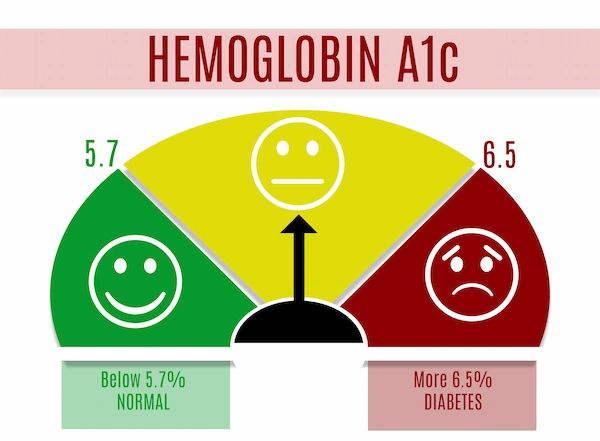Is Kiwi Good For Diabetes?
Discover the benefits of kiwi for diabetes management. Learn how this nutrient-rich fruit can help regulate blood sugar levels, improve heart health, and support overall wellness.

Written by Dr Shreya Sarkar
Last updated on 13th Jan, 2026
When managing diabetes, one of the most important considerations is to choose foods that support balanced blood sugar levels. Fruits are an essential part of a healthy diet, but all fruits are not having equal properties and effects—especially when it comes to diabetes. So, is kiwi good for diabetes? Known for its tangy flavour and impressive nutrient profile, kiwi is a popular fruit that may offer several health benefits for those with diabetes. In this article, we will explore whether kiwi can be safely enjoyed by people with diabetes, looking at its glycemic index, nutritional content, and overall impact on blood sugar management. If you’re wondering if this vibrant fruit is a good addition to your diabetes-friendly diet, read on to learn more.
Nutritional Profile of Kiwi
Kiwi is a nutrient-dense fruit that packs a punch in terms of vitamins and minerals. A 100-gram serving of kiwi provides:
Calories: 61 kcal
Protein: 1.1 g
Carbohydrates: 15 g
Fiber: 3 g
Sugars: 9 g
Calcium: 34 mg
Vitamin C: 92.7 mg
Vitamin K: 40.3 µg
Vitamin E: 1.46 mg
Potassium: 312 mg
Folate: 25 µg
Beta Carotene: 52 µg
Lutein and Zeaxanthin: 122 µg
These nutrients contribute to kiwi's various health benefits, making it a valuable addition to a diabetic diet.
Kiwi's Glycemic Index and Glycemic Load
The glycemic index (GI) ranks carbohydrates in foods according to how they affect blood sugar levels. Foods with a low GI (55 or less) are digested, absorbed, and metabolised more slowly, causing a slower rise in blood sugar levels. Kiwi has a moderate GI of around 50, which means it causes a slower, more gradual rise in blood sugar levels compared to high-GI foods.
Glycemic load (GL) combines the amount of carbohydrate in food as well as its GI. It provides a more accurate picture of a food's impact on blood sugar levels. Kiwi has a low GL of 7.3, meaning its overall impact on blood sugar is minimal when consumed in moderate amounts.
Benefits of Kiwi for Diabetes
Kiwi offers a multitude of health benefits, particularly for those managing diabetes. This nutrient-dense fruit can aid in regulating blood sugar levels and improving overall health.
Low Glycemic Impact: The moderate glycemic index (GI) and low glycemic load (GL) of kiwi make it an ideal fruit for diabetics. It causes a slower, more gradual rise in blood sugar levels compared to high-GI foods, preventing rapid spikes.
High Fiber Content: Kiwi is rich in dietary fibre, which plays a crucial role in managing diabetes. Fibre slows down the digestion and absorption of carbohydrates, helping to stabilise blood sugar levels. Additionally, fibre promotes a feeling of fullness, preventing overeating and aiding in weight management, which is vital for diabetes control.
Rich in Antioxidants: Kiwi is packed with antioxidants such as vitamin C, vitamin E, and polyphenols. These antioxidants help reduce oxidative stress and inflammation, which are common in diabetics. Lower oxidative stress can improve insulin sensitivity and reduce the risk of diabetes-related complications.
Heart Health: Maintaining heart health is a critical aspect of diabetes management, and Kiwi can contribute positively. It is rich in potassium, which helps regulate blood pressure, and its fibre content helps lower cholesterol levels. Both factors contribute to a healthier heart, reducing the risk of cardiovascular diseases.
Improved Immune Function: The high vitamin C content in kiwi boosts the immune system, which can be particularly beneficial for diabetics as they are more prone to infections.
How to Incorporate Kiwi into a Diabetic Diet
Incorporating kiwi into a diabetic diet can be both delicious and beneficial. Here are several ways to add this nutrient-rich fruit to your daily meals:
Fresh Kiwi: Enjoying kiwi fresh is the simplest way to incorporate it into your diet. Peel and slice the fruit, and eat it as a standalone snack. Its natural sweetness makes it a satisfying option without the need for added sugars.
Kiwi Smoothie: Blend kiwi with other low-GI fruits such as berries, and add some Greek yoghurt or a splash of almond milk for a refreshing and nutritious smoothie. This combination provides a balanced mix of fibre, protein, and antioxidants.
Kiwi Salad: Add sliced kiwi to your salads for a sweet and tangy twist. Combine kiwi with leafy greens like spinach or kale, nuts, and a light vinaigrette dressing. The fibre and nutrients from the kiwi and greens make this a healthy addition to any meal.
Kiwi Salsa: Create a fresh and zesty salsa by combining diced kiwi with tomatoes, onions, cilantro, and a squeeze of lime juice. This salsa pairs perfectly with grilled chicken or fish, adding flavour and nutrition to your protein dishes.
Kiwi in Breakfast: Start your day with a boost of vitamins by adding kiwi to your breakfast. Mix kiwi slices into oatmeal or yoghurt. The fruit's natural sweetness can replace the need for added sugars, making your breakfast both healthy and delicious.
Baking with Kiwi: Incorporate kiwi into baking recipes such as muffins or bread. Kiwi adds moisture and a unique flavour to your baked goods. Ensure you balance the recipe with other low-GI ingredients to keep it diabetes-friendly.
Considerations for Adding Kiwi to Your Diet
To effectively incorporate kiwi into your meals for diabetes management, keep these key points in mind:
Moderation is Key
While kiwi is healthy, consuming large amounts can increase sugar and carbohydrate intake, potentially affecting blood sugar levels. Enjoy kiwi in moderation to help maintain stable blood sugar.
Try It Fresh
Fresh kiwi fruit can be a delightful and refreshing snack on its own. Slice it up and enjoy the vibrant green flesh and tiny black seeds, which are packed with vitamins, minerals, and antioxidants.
Pair with Low-GI Foods
Combine kiwi with other low glycemic index (GI) foods like berries, nuts, or whole grains to help keep blood sugar levels stable. Kiwi’s natural sweetness and refreshing taste complement many foods, making it easy to include in a diabetes-friendly diet.
Watch for Allergies
Some individuals may experience allergic reactions to kiwi fruit. Symptoms can include tingling, itching, or swelling. Discontinue consumption and consult your healthcare provider if you experience any adverse reactions.
Consult a Professional
If you’re introducing kiwi into your diet, especially if you have dietary restrictions or health concerns, consult your healthcare provider or a registered dietitian for personalised advice.
Conclusion
Kiwi is a nutritious, versatile fruit that can be a valuable part of a diabetes-friendly diet. Its moderate glycemic index, high fibre content, and rich antioxidant profile make it an excellent choice for managing blood sugar levels and overall health. However, it's important to consume kiwi in moderation and as part of a balanced diet. By incorporating kiwi thoughtfully and monitoring its effects on your blood sugar, you can enjoy its many benefits while effectively managing your diabetes.
Remember, always consult with your healthcare provider before making significant changes to your diet, especially if you have diabetes. They can provide personalised advice based on your individual health needs.
Consult Top Diabetologist
Consult Top Diabetologist

Dr. Utsa Basu
Diabetologist
14 Years • MBBS , MD
Barasat
Diab-Eat-Ease, Barasat
(75+ Patients)

Dr. Vivek D
General Physician
4 Years • MBBS
Bengaluru
PRESTIGE SHANTHINIKETAN - SOCIETY CLINIC, Bengaluru

Dr. Arif Ahmed
General Physician/ Internal Medicine Specialist
9 Years • MBBS, MD (Genl. Med.)
Kolkata
MCR SUPER SPECIALITY POLY CLINIC & PATHOLOGY, Kolkata

Dr. Swaroopa Rani
General Physician/ Internal Medicine Specialist
9 Years • MBBS, MD (Internal Medicine)
Bengaluru
Apollo Medical Center, Marathahalli, Bengaluru

Dr. Nithin N T
General Physician
6 Years • MBBS, MD General Medicine
Bengaluru
PRESTIGE SHANTHINIKETAN - SOCIETY CLINIC, Bengaluru



